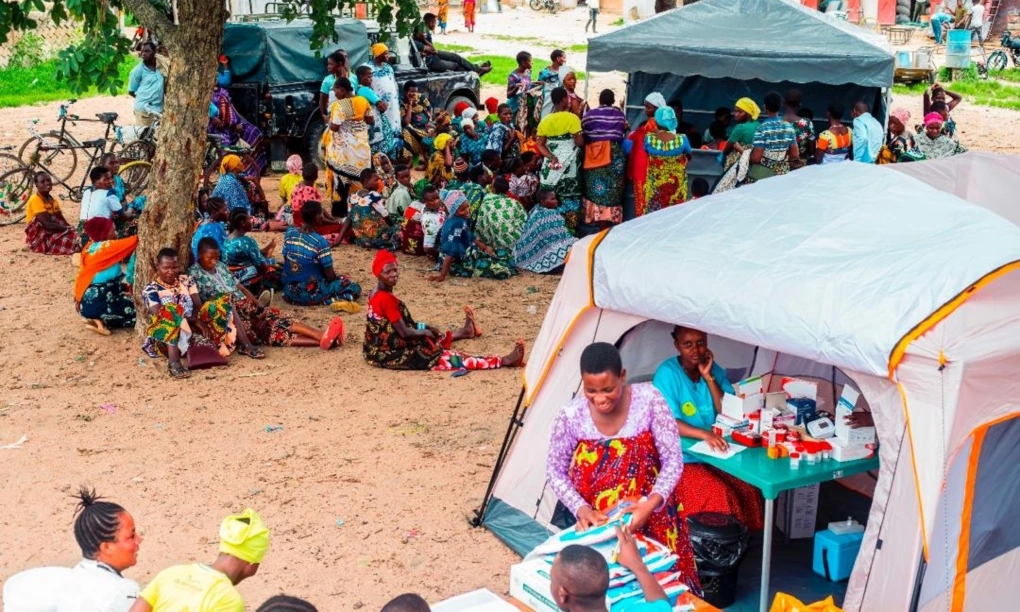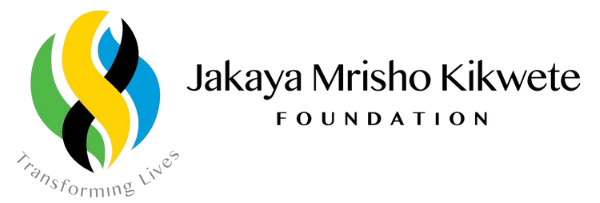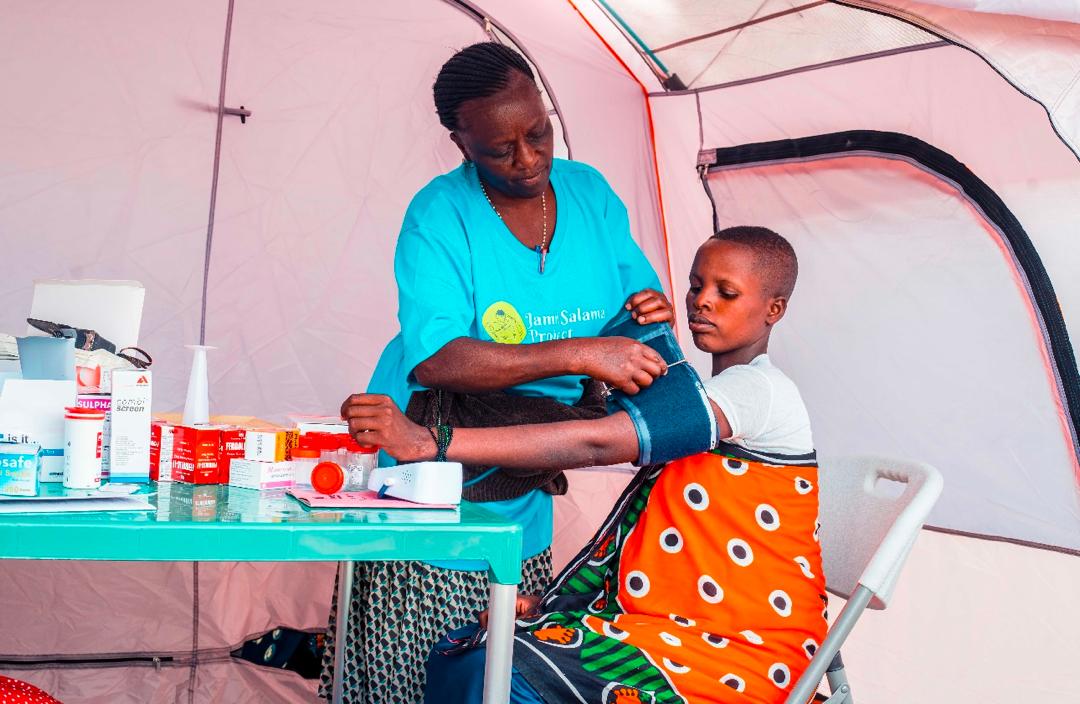A 19-year-old first-time mother, Asia, arrived at the Jamii Salama (Safer Communities) mobile antenatal care (ANC) outreach site in her ninth month of pregnancy for her third ANC check-up. Though she appeared cheerful and strong, routine examinations revealed something critical, she was severely anaemic. Following registration, Asia underwent a series of tests. While her blood pressure and urine tests were normal, a blood test revealed a dangerously low haemoglobin level, and physical examination showed swollen feet. These were red flags (danger signs) requiring urgent attention.
Despite appearing healthy, Asia’s condition posed a serious threat to both her life and her baby’s. The Jamii Salama health workers immediately explained her condition, and she was referred to Sikonge District Hospital in Tabora region, 40 km away, via the nearby Tumbili Dispensary.

That afternoon, the Jamii Salama mobile ANC vehicle picked up Asia from home. She endured the long, bumpy ride in silence, visibly fatigued but hopeful. On arrival at Sikonge Hospital around 6:00 p.m., she was admitted, reassessed, and promptly began treatment, including a blood transfusion. The Jamii Salama team returned to the outreach site by 7:00 p.m. to continue serving other waiting women. Despite the late hours and limited lighting, the team remained committed to providing quality services.
Three days later, the community health worker (CHW) confirmed that Asia had safely delivered a baby boy via cesarean section. Her family expressed immense gratitude, acknowledging that without Jamii Salama’s early intervention, both mother and baby could have been lost.
WHO recommends daily iron and folic acid supplementation during pregnancy to prevent anaemia. The Jamii Salama Project implemented by the Jakaya Mrisho Kikwete Foundation (JMKF) in partnership with the Government of Tanzania and funded by S.C. Johnson and Son Company, addresses this by providing supplements and nutrition education alongside ANC services. By the end of April 2025, 1,221 pregnant women had been served by the project, with 34.3% found anaemic. Thirty of these had severe anaemia and were managed or referred accordingly highlighting the project’s critical role in saving lives.




